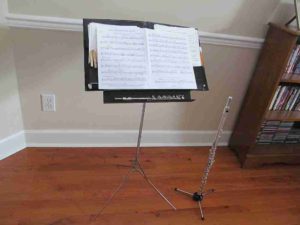Living in a Third-World Country — In Knoxville
[This is a longer version of a letter I sent to the Knoxville News Sentinel on 28 December 2022, which they did not publish. I don’t have a restriction to 300 words in my posts so here is the original unpruned version. By the way, my post on how I got kicked out of the Oak Ridge Community Band appears two posts down.]
My husband has taken to saying that we now live in a third-world country. Consider the evidence.
Our Lenoir City Utility Board electricity goes out with dismaying frequency with no cloud in the sky. Our local Kroger is constantly out of stuff, so we have to travel to a more distant but better-supplied Kroger. We joke that ours is the have-not store.
We used to get mail at 11:00 am, then at 4:00 pm. Then it would arrive as late as 9:00 pm and often sat in the box all night. Occasionally we would get no mail at all even when people elsewhere do, e.g., yesterday. Per the post office, our longtime carrier was moved to another route; we weren’t scheduled to get a new one until January 2023, so the carriers had to double up on routes. An Oak Ridge friend said that her neighborhood did not get mail for an entire week. When it restarted, her carrier explained that the post office had not hired anybody to replace him while he was on vacation.
The News Sentinel now skips publication on holidays. But sometimes we don’t get a newspaper even on a scheduled day. With no redelivery, there is supposed to be a credit by extension of the subscription. But my husband kept track: there was no extension at renewal time. So basically you just pay and hope you get a paper most days. A male friend opines that the News Sentinel has devolved into what is essentially a sports magazine with a little news thrown in. The public’s attention seems to be very drawn to the circus/gladiator aspect of watching sports, especially football, and this is reflected in the news media’s reference to “our Tennessee Vols”, as if everybody living in Tennessee was automatically a fervent fan.
There seem to be a great many practices based on superstition, particularly in the area of medical care – attitudes toward vaccination, for example, with some ivermectin voodoo thrown in.
We now vote by paper ballot, filling in tiny boxes to indicate our choices – just like those 1960’s-era standardized tests. The Knoxville police chief was hired by a secret process and the mayor thinks that’s just fine. Developers seem to receive all sorts of waivers and variances upon request and little effort seems to be made by reporters to follow the money; in fact, the TV reporters seem to flack for development, notably the baseball stadium. It’s hard to think of all that as representative, responsive government, bolstered by a strong fourth estate.
As I said, third-world living.





